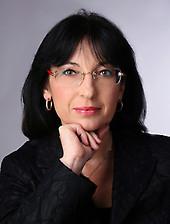From November 29 to December 5, 2024, the opinion research institute Ipsos conducted a qualitative focus group study on political sentiment in Germany on behalf of the Konrad Adenauer Foundation. The study examined the attitudes of AfD voters and the newly founded Sahra Wagenknecht Alliance (BSW) as well as all other Bundestag parties on key socio-political challenges such as migration, the economy and the climate. A total of twelve face-to-face focus groups with eight participants each were held in six major cities - Dresden, Düsseldorf, Hanover, Berlin, Mannheim and Rostock.
The key findings of this study can be summarized as follows:
- The prevailing political mood is characterized by a more differentiated perception of the challenges and deviates in part from the pessimistic tenor of the previous year. Despite numerous points of criticism and concerns, positive aspects and developments are moving more into the focus of public perception. Nevertheless, there is a growing awareness of problems across all voter groups, particularly in relation to the key issues of migration and the economy.
- It is particularly striking that the migration debate is characterized by a return to a certain tabooing of the topic, which may be a reaction to past polarization and a broader social uncertainty in dealing with the issue. At the same time, however, an objectification of the discourse and a more problem-oriented discussion of migration policy issues can also be observed, which at least in part indicates a moderating influence of BSW voters in AfD group discussions.
- Economic issues and the associated fears of decline have become significantly more important compared to the previous year and are increasingly replacing migration as the central or overarching issue. Climate protection has drastically lost priority across all voter groups, although it remains a polarizing and emotionally charged issue.
- As a new party, the BSW is challenging traditional positioning schemes. While AfD and BSW are ascribed similar attributes by their respective voters, such as a pronounced willingness to change and a particular closeness to the people, voters of other parties, on the other hand, criticize a political style that is perceived as populist. At the same time, both parties are perceived as marginalized and stigmatized by the established parties.
- Despite fundamental differences, the voting motives of AfD and BSW voters are similar in terms of the frequently expressed desire for far-reaching political change and a high attribution of competence to both parties in the areas of migration and economic policy. Although BSW voters are certainly open to AfD positions and show a certain willingness to change, there is also a strong demarcation from the far-right sections of the AfD. AfD supporters appear largely immune to criticism of far-right positions, which indicates a further consolidation of the voter base.
- Among the other parties in the Bundestag, the CDU/CSU in particular - and to some extent the SPD - are benefiting from the desire for stability. Despite a drastic decline in the importance of climate protection in the political debate, the Greens are still considered by their supporters to have a high level of environmental and climate policy expertise and credibility.
- Despite increasing polarization and the development of echo chambers in social media, the focus groups conducted reveal a healthy core of German debate culture. There is a strong need for non-partisan dialog. There is a fundamental willingness to exchange views and an interest in other opinions.
These and other detailed findings can be found in the full study "Alles muss, nichts darf sich ändern? – Eine qualitative Analyse der politischen Stimmung vor der Bundestagswahl 2025 und Erwartungen an die Parteien" here as a PDF. Please note, to date the study is only available in German.




